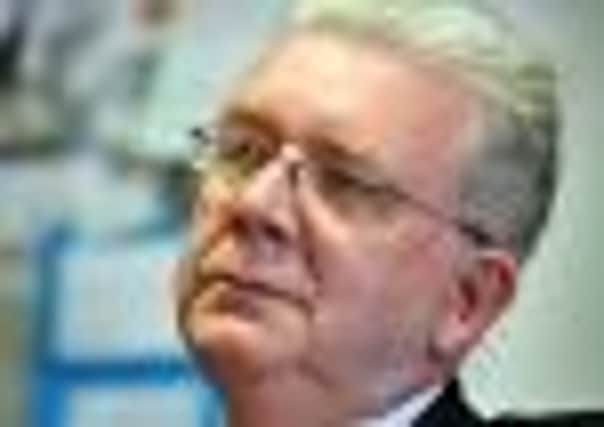Teachers slate report into work conditions


The review of teachers’ pay and conditions, which was led by Professor Gerry McCormac, principal of Stirling University, was published last week, following an eight-month investigation.
It recommended a series of changes to make working arrangements in Scotland’s schools more flexible, without removing the 35-hour week worked by teachers.
Advertisement
Hide AdAdvertisement
Hide AdHowever, appearing before the Scottish Parliament’s education committee yesterday, teaching unions criticised the review, with one group accusing it of “rehashing” ideas already in use.
Asked about his reaction to plans to organise class contact time across a month or a term rather than the school week, Drew Morrice, assistant secretary of the Educational Institute of Scotland (EIS), said: “I think it will encourage an approach by teachers which could be seen as clock-watching.
“I think the key thing in relation to this is that Professor McCormac has just simply ducked and disregarded the whole question of teacher workload.
“Flexibility seems to be a replacement for addressing that issue by an assumption that people will just simply work more or longer hours.”
Ann Ballinger, general secretary of the Scottish Secondary Teachers’ Association, added: “I don’t think it will improve flexibility. Teachers are already very flexible. I don’t see this improving education either.
“It simply rehashes all the things that are already being done, and possibly recommends that they are done with less flexibility.”
However, there was some support for Prof McCormac, who himself will appear before the committee next week.
John Stodter, the general secretary of the Association of Directors of Education in Scotland, said he hoped the review would encourage a “culture shift” among teachers, while Andrew Sutherland, of Cosla, said the flexibility outlined in the report would improve educational attainment for children.
Advertisement
Hide AdAdvertisement
Hide AdConcerns were also raised over current opportunities for teacher progression and the possibility of bringing in so-called “external experts” to take some lessons.
Meanwhile, education secretary Michael Russell will today use a speech at the Scottish Learning Festival in Glasgow to outline further developments of the Curriculum for Excellence, including the introduction of a “P7 profile” for pupils finishing primary school to help capture their key achievements.
There will also be additional support for parents and teachers to ensure understanding of new qualifications currently under development.
Mr Russell said: “There is still much more to do to maintain the ongoing success of Curriculum for Excellence. This action plan will see a better flow of information between local authorities, schools, parents and pupils, not least around the development of new qualifications, due for introduction from 2013/14.”